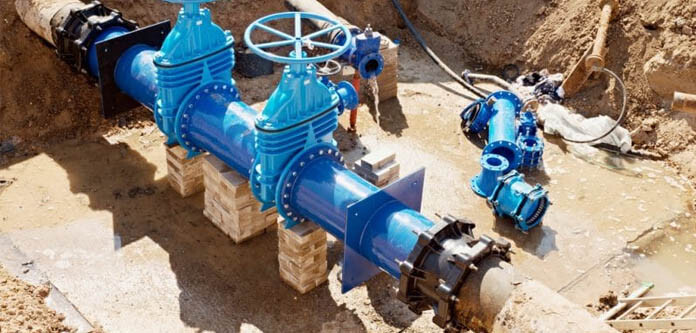The Japanese International Cooperation Agency (JICA) has disclosed that it will finalize and launch phase one of its water supply system in Juba in February next year.
In 2013, JICA initiated a water treatment plant that includes the construction of a service reservoir and pipes for distribution in Juba.
The project was, however, interrupted by years of violence that resulted in the Japanese government evacuating its engineers from the country.
According to JICA, when completed, the water project will provide clean water to more than 25,000 people in the capital by 2025.
According to JICA President Dr Tanaka Akihiko who arrived in Juba on 18 May for the commissioning of the Freedom Bridge, visited the two sites of the water plant in Juba and Customs and said the first phase of the project is about to be completed.
Dr Tanaka confirmed that the scheme will be inaugurated and handed over to the South Sudan Urban Water Corporation by early 2023.
“I am very pleased that the construction is on track and so the entire system will be in operation next year,” Dr Tanaka said.
Dr. Tanaka Akihiko stated that the water supply system will connect over 400,000 people living in Juba.
“With the completion of this water supply system, nearly 400,000 people in Juba will have access to safe and clean drinking water,” he added.
He also pledged the continuous support of his government towards the development and prosperity of South Sudan.
“The government of Japan and the people of Japan and JICA are always eager to engage in collaborative activities with the people and the government of South Sudan,” he said.
“We are happy that we have been able to complete the Freedom Bridge and we are very happy to observe that this very water supply system is on track and in doing that, I think we will be able to cement the relationship between the people of Japan and the people of South Sudan,” he added.
For his part, Engineer Jacob Kuot Daniel, the Area Manager for South Sudan Urban Water Corporation said the completion of the clean water project will minimize the outbreak of the waterborne disease in the city.
“Cholera and water-borne diseases like typhoid are going to be reduced. We are expecting that almost the whole population will get safe and affordable water from this facility,” Daniel stated.
Meanwhile, Project Engineer Ronald Amin Solomon revealed that 85 percent of the work is done.
Solomon however said some members of the community are resisting allocating land for planting the taps. “Now, we have completed about 85% of the project and we have finished with the public taps, and work is still ongoing at the filling stations,” he said.
“The challenges we are facing on the public taps is the land acquisition. Sometimes you will go to other areas but they will refuse to give us land for the public taps, and the filling stations,” he added.
According to Solomon, there are about eight tank filling stations in Juba.
The phase one project is connecting three blocks of Juba town, Munuki and Kator.
Phase one of the water project connects the three blocks of Juba town, Munuki and Kator payams.
Currently, the majority of Juba residents depend on water supply from the River Nile. The city depends on water supply from mostly privately owned water tankers.




